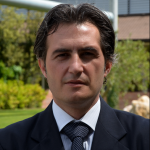“Quiet Skies” – A TSA Surveillance Program Targets Ordinary U.S. Citizens
Here we are once more to discuss another surveillance program that could threaten the privacy of U.S. citizens. This time, our topic is the previously-undisclosed "Quiet Skies" program.
The Transportation Security Administration (TSA) has admitted that the program has monitored about 5,000 U.S. citizens on domestic flights in recent months.

What should you learn next?
Like any other surveillance program, Quiet Skies was criticized by privacy advocates because the authorities have begun monitoring U.S. citizens that aren't suspected of a crime or of involvement in terrorist organizations.
The domestic surveillance program aims at collecting extensive information about the movements of the citizens and their behavior.
"The previously undisclosed program, called 'Quiet Skies,'" specifically targets travelers who "are not under investigation by any agency and are not in the Terrorist Screening Data Base," states a bulletin issued in March by the TSA.
U.S. authorities launched the Quiet Skies program to thwart threats to commercial aircraft "posed by unknown or partially known terrorists." Under the program, the TSA is authorized to focus its investigation on any person of interest, even if he/she was not believed to have been involved in activities representing a threat to homeland security.
The program may target people who have spent a certain amount of time in specific countries or have visited those counties within a certain period of time. Other elements factor in: a reservation which includes email addresses or phone numbers associated to terrorism suspects could trigger monitoring.
Passengers remain on the Quiet Skies watch list "for up to 90 days or three encounters, whichever comes first, after entering the United States," according to the TSA. Travelers are not notified when they have been added to the watch list.
Small teams of armed, undercover air marshals are involved in the monitoring activities. The records collected by the agents include whether passengers fidget, use a computer or have a "cold penetrating stare," among other behaviors. Air marshals take note of many aspects related to passengers in two separate reports and send this information back to the TSA. Every U.S. citizen that arrives in the country is under the scrutiny of the Quiet Skies, as the air marshals check their travel patterns and affiliations.
According to the Globe website that quoted some air marshals, the agency has tasked with shadowing travelers even if they appear to pose no real threat, such as a businesswoman who traveled through a Mideast hot spot and a fellow federal law enforcement officer. The teams of agents were involved in surveillance activities on domestic flights, to or from dozens of U.S. cities.
Documents obtained by the journalists revealed that every day about 40 to 50 people on domestic flights are selected under the Quiet Skies program and on average, air marshals follow and surveil about 35 of them.
Of course this kind of surveillance activity is very expensive for the U.S. government and drains resources from other vital activities. Some air marshals, who spoke on the condition of anonymity because they are not authorized to speak publicly, told the Globe that the surveillance program burns taxpayer money and doesn't make the country more secure.
TSA declined to discuss the cost of the program or whether it allowed them to identify and neutralize any threat. However, in a written statement to the Globe its officials defended the efforts of the agency to deter potential acts of terror.
Extensive information was gathered by the agency on each subject. Below is a truncated list of the observed behaviors and factors, as reported by the Globe:
- Subject was abnormally aware of surroundings (Changing directions or stopping while in the airport, changing clothes or altering appearance, using reflections to identify surveillance)
- Subject exhibited behavioral indicators (Excessive fidgeting, strong body odor, sweaty palms, rapid eye blinking)
- Subject's appearance was different from information provided (Gained or lost weight, new tattoos, balding)
- Subject slept during the flight (A little? A lot?)
- General observations (Checked baggage? In possession of unusual items? Multiple phones? Used the toilet?)
- For domestic arrivals only (Picked up by public transport or private vehicle, or rented car)
According to the bulletin, the agency leverages 15 rules to screen passengers. The rules may target individuals whose travel patterns or behaviors match those associated with suspected terrorists, or people "possibly affiliated" with someone on a watch list. The Globe did not obtain the full list of criteria for the Quiet Skies program.
When someone is selected for surveillance, the agency send a team of air marshals on the person's next flight. The agency provides the agents a file containing a photo and basic information about the target.
The Quiet Skies program represents an important evolution of monitoring activities adopted by the US Government after September 11 terrorist attacks, but it also targets civilians not on a terrorist watch list.
Of course the program is considered borderline and some air marshal agents interviewed by the Globe fear it could be illegal:
"Some air marshals say goes beyond the mandate of the US Federal Air Marshal Service. Some also worry that such domestic surveillance might be illegal. Between 2,000 and 3,000 men and women, so-called flying FAMs, work the skies," reports the Globe website.
"Since this initiative launched in March, dozens of air marshals have raised concerns about the Quiet Skies program with senior officials and colleagues, sought legal counsel, and expressed misgivings about the surveillance program, according to interviews and documents reviewed by the Globe."
Privacy advocates and experts on civil liberties defined the Quiet Skies program worrisome and potentially illegal:
"These revelations raise profound concerns about whether TSA is conducting pervasive surveillance of travelers without any suspicion of actual wrongdoing," said Hugh Handeyside, senior staff attorney with the American Civil Liberties Union's National Security Project.
"If TSA is using proxies for race or religion to single out travelers for surveillance, that could violate the travelers' constitutional rights. These concerns are all the more acute because of TSA's track record of using unreliable and unscientific techniques to screen and monitor travelers who have done nothing wrong."
Asked about the legal basis for the Quiet Skies program, an agency's spokesman, said TSA "maintains a robust engagement with congressional committees to ensure maximum support and awareness" of its effort to keep the aviation sector safe. He declined to comment further.
Since 2017, Congress has investigated the efficiency of the TSA. According to a 2017 Government Accountability Office report, the agency spent $800 million in 2015 but was not able to provide information demonstrating that they had deterred attacks.
The analysis of the Quiet Skies program made by the Globe was based on numerous TSA internal bulletins, directives and internal communications, and interviews with more than a dozen people with direct knowledge of the activity.
According to the website, internal agency e-mails shows that the monitoring activity is not yet well defined, especially for any aspect about the program's parameters and it implementation.
Of course, such monitoring programs are very dangerous for the privacy of U.S. citizens and the risk of abuses is high. For this reason. it is essential that the program adopts clear parameters for the selection of individuals and will use a consolidated checklist for their scrutiny.
Quiet Skies focuses
Sources
Welcome to the Quiet Skies, Boston Globe
TSA admits 'Quiet Skies' surveillance snared zero threats, Boston Globe

FREE role-guided training plans




